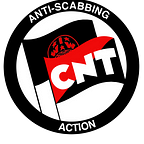In Defense of Superheroes
With the mainstreaming of the superhero over the course of the last decade, I have seen in many leftist circles — being that we are of course “ruthless critics of all that exists” — an argument that the superhero is bourgeois. Some even go so far as to call the superhero a form of police officer. To be entirely fair to these comrades, there are instances where this is explicitly the case. Batman and Iron Man, for instance, are the pinnacle of neoliberal doctrine, squandering wealth in the name of a violent ego trip whilst fighting individuals (usually the mentally ill, which creates a whole conversation unto itself) rather than systems, no doubt privately fighting things like trade unions and tax expansion upon their class. However, this classification of the superhero as a whole is profoundly mistaken.
It is of course understandable where this mistake comes from — due to their existence as intellectual property, the superheroes are often used for bourgeois purposes. Why only recently Marvel had produced a comic advertising an arms manufacturer, before being told overwhelmingly that this was grotesque. And of course the long history of comic books as wartime propaganda is well-known, even to the uninitiated. However, this is a consequence of the conditions of intellectual property, rather than the superhero concept itself. For the purpose of shortness, we shall set aside the aspect of the superhero as escapism, or even as something that is relatable. Instead, let us talk of the spirit of superheroism, and indeed the class character of most superheroes.
Most superheroes are not Batman, Iron Man, Green Arrow, Ozymandias, and so on. They do not generally come from bourgeois backgrounds. Peter Parker, up until very recently (see Dan Slott’s The Superior Spider-Man series) was a working class man from a working class background. Similarly, Kamala Khan (of G. Willow Wilson’s increasingly popular Ms. Marvel) is a working class child from a working class family. Hell, Al Simmons (of Todd McFarlane’s Spawn) and Walter Kovacs (Rorscach of Alan Moore’s opus Watchmen) are both destitute. But of course economic position can be a debatable factor in judging the class character of something. Steve Rogers, for instance, is by no metric a wealthy man, but he is a radical liberal servant of an imperialist nation (to his credit, his own sense of civic nationalism does have him question authority, which creates the Civil War event).
So let us instead judge the superhero for what they are. For the purpose of argument, let us again set aside the consequences of intellectual property and simply say: What is a superhero? What do they do? What the superhero is, comrades, is a remarkable individual, usually though not exclusively gifted with some superhuman ability. What they do, generally speaking, is save the world and all the liberties of those on it, from global conquest, or liberate it from this conquest. With that in mind, I ask you: What could accomplish this task in reality? The task of global conquest, of oppression so perfect and calculated that it must have taken a criminal mastermind.
The answer of course, is capital. Capitalism, with it’s ferocious exploitation, colonialism, imperialist actions, racism, and overall gaslighting of the human race, is what you need for this purpose. World conquest, despite what Lex Luthor or Norman Osborne might think, does not require either man to possess a death ray, or chemical weapons, or alien technology. No, these men need simply break out a black company credit card and know which politician to buy off, which otherwise wealthy nation to exploit with foreign export, and so on. The closest allegory to the Legion of Doom, comrades, is not some grotesque cabal of fascists, like say the so-called Alliance for Peace and Freedom, but instead global capital, which has ensnared the Earth outright and is leading it inexorably to ecological collapse.
We may then draw our own parallels. Our T’Challa, for instance, far from being some neoliberal fantasy of a benevolent ultra-wealthy monarch, is more than likely someone like Thomas Sankara, an actual African revolutionary who liberated Burkina Faso (then Upper Volta) from colonial rule. Or perhaps he’s more akin to Frantz Fanon, who aided in the liberation of Algiers? I know this sounds like fanfiction, but if the supervillain, that is to say a seemingly larger-than-life conqueror is the capitalist, what then is the superhero? Surely it is not a leap to argue that although the consequence of intellectual property makes caped crusaders into images of bourgeois ideology, the closest real-life allegory is the socialists? It is not the bourgeoisie who liberate the oppressed peoples of the world, nor even safeguard them from conquest, and it damn well is not bourgeois ideologues (read: liberals) who do this either. It can be said, conclusively I think, that the issue is not with the superhero itself, but rather with the chains that bind them as property.
Anyway, here’s a ridiculous Captain America clone called “The Fighting Yank” wrecking some Nazis:
